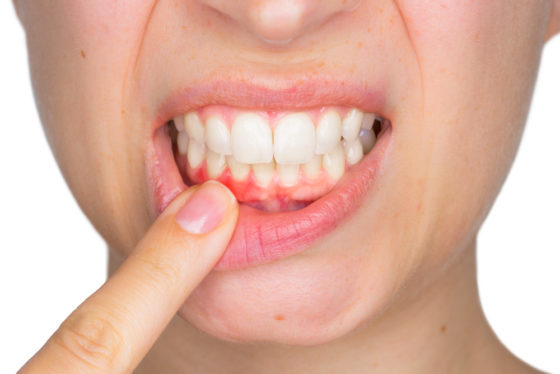A tooth abscess is an area of pus that’s caused by a bacterial infection. The abscess can occur at different places of the tooth for different reasons. There are three types of abscess:
- Periapical abscess
- Periodontal abscess
- Gingival abscess
A periapical abscess can happen at the tip of the root, whereas a periodontal abscess can happen in the gums right next to a tooth root and gingival abscess can happen in the gums.
Your dentist will treat a tooth abscess by draining it and removing the infection. In such conditions, your tooth can be saved by a root canal treatment. In some severe cases, your dentist may recommend removing the tooth. A prolonged tooth abscess can lead to serious, even life-threatening, complications.
Signs and symptoms of a tooth abscess include:
- A severe toothache that can appear in the jawbone, neck or ear
- Sensitivity while having hot and cold foods.
- Sensitivity to the pressure of chewing or biting
- Fever may appear because of severe pain.
- Swelling in the areas of face or cheek.
- Tender, swollen lymph nodes under your jaw or in your neck
- A sudden rush of foul-smelling and foul-tasting, salty fluid in your mouth and pain relief if the abscess ruptures.

What are the causes of a tooth abscess?
Causes of the tooth abscess depend upon which type of abscess you are having. The causes of the different abscess are mentioned below:
Periapical abscess:
It happens when bacteria enter the pulp of the tooth and spreads infection all the way to the tooth root, A tooth pulp is the innermost part of the tooth that contains blood vessels, nerve, and connective tissue. Usually, bacteria enter the pulp through a hollow or crack in the tooth.
Periodontal abscess:
It is typically caused by gum disease in some cases it can also be the result of an injury.
Gingival abscess:
An external thing which stuck in the gum can lead to a gingival abscess. For example, a popcorn hull or toothbrush bristle when gets embedded in your gums may lead to an abscess.
Risk factors
There are some factors that can contribute to increasing your risk of a tooth abscess:
Inadequate dental hygiene: Not taking proper care of your oral hygiene such as not brushing your teeth and not flossing can increase your risk of the tooth cavity, gum disease, tooth abscess, and other dental complications.
A diet high in sugar:
Frequently eating and drinking foods sugary stuff, such as sweets and sodas, can contribute to dental complications.
Longtime tooth cavity:
If you already have a dental cavity in your tooth, it will make a way to bacteria to enter the pulp. Hence, it needs to be sealed.
Any injury in the mouth for a long time: Any injury for a long time should not be neglected. If it is not healed, it may attract bacteria and harm your gums.

Complications
A tooth abscess won’t go away without treatment. The abscess needs to be drained and treated to remove any infection. If it is not drained, the infection can spread to the surrounding areas. Sometimes it has the risk to spread your head and neck. You might even develop sepsis – It’s a more serious and threatening infection that spreads throughout your body.
If you have a weakened immune system and you leave a tooth abscess untreated, your risk of a spreading infection increases even more.
Prevention
Avoiding tooth decay comprises an essential step in order to prevent the tooth abscess. Take good care of your oral health to avoid tooth decay:
- Use fluoridated drinking water.
- Brush your teeth at least twice a day with fluoride toothpaste.
- Use dental floss or an interdental cleaner to clean between your teeth on a daily basis.
- Replace your toothbrush every three or four months, or whenever the bristles are frayed.
- Eat healthy food, limiting sugary items and between-meal snacks.
- Visit your dentist for routine checkups and professional cleanings.
Consider using an antiseptic or a fluoride mouth wash to include an extra layer of protection against tooth decay.
Treatment and Diagnosis: If you find any related symptoms of an abscess, it’s suggestible to find, a dentist before it gets worse. Because if the abscess stays a long time, it will spread more infection.
Your dentist will help you to get rid of the infection and may save the tooth. He/she may visually examine your mouth first. They may incorporate an X-ray or CT scan to analyze the severity of the infection.
How dentists will treat me?
Dentists will perform a treatment according to your condition. However, the most conventional procedures are explained below:
Drain the abscess: Infection stores in an abscess in the form of a sticky liquid. Your dentist will incise the area and drain the infection.
Perform a root canal: This procedure is performed when you have an abscess due to the cavity for a long time. Your dentist will remove the decayed part of the tooth and remove all the infection from the tooth pulp.
Ultimately, it will be sealed with a substance.
Prescribe antibiotics: If the infection is limited to a certain area, it may not require antibiotics. If the infection spreads to the nearby teeth, then it may require antibiotics.





